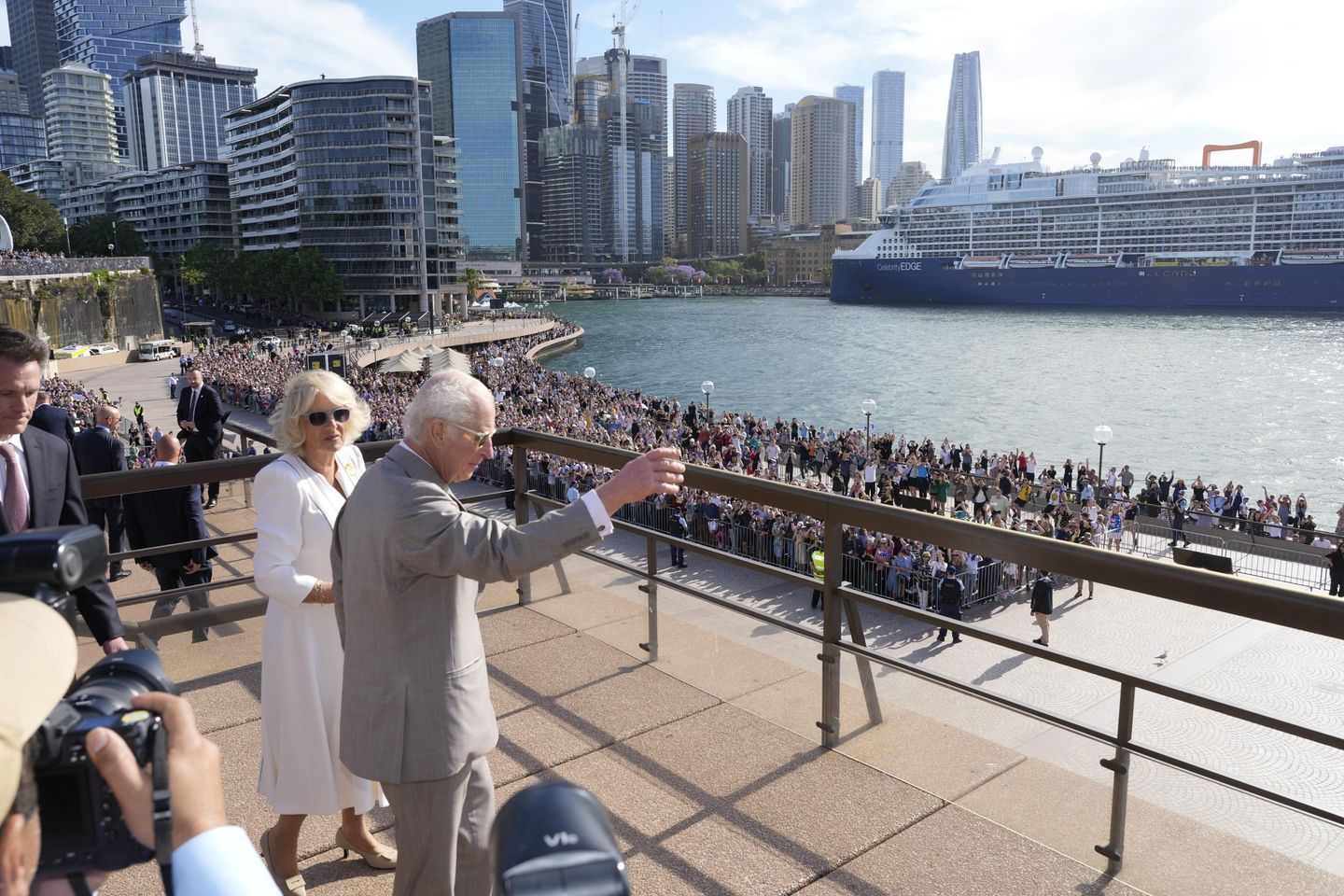King Charles III made history on Tuesday as he concluded the first visit to Australia by a reigning British monarch in 13 years. The visit was met with both excitement and controversy, with anti-monarchists using the opportunity to push for Australia to become a republic with an Australian citizen as the head of state.
The visit, which lasted for several days, saw King Charles III and his wife, Queen Camilla, travel to various cities across the country, including Sydney, Melbourne, and Canberra. They were greeted by crowds of well-wishers wherever they went, with many Australians eager to catch a glimpse of the royal couple.
During his time in Australia, King Charles III participated in a number of official events, including meetings with government officials and representatives from various organizations. He also took the time to visit cultural landmarks and meet with members of the public, in an effort to connect with the Australian people.
However, not everyone was pleased with the visit. Anti-monarchists seized upon the opportunity to highlight what they see as the outdated and undemocratic nature of the monarchy. They argue that Australia should sever its ties with the British monarchy and become a republic, with an Australian citizen serving as the head of state.
The debate surrounding the monarchy in Australia is nothing new. The issue has been a contentious one for decades, with opinions divided on whether the country should remain a constitutional monarchy or become a republic. Proponents of the monarchy argue that it provides stability and continuity, while opponents argue that it is a relic of the past and out of touch with modern democratic values.
The visit of King Charles III reignited this debate, with anti-monarchists using the occasion to call for a national referendum on the issue. They argue that the time has come for Australia to take control of its own destiny and choose its own head of state, rather than rely on a foreign monarch.
Supporters of the monarchy, on the other hand, point to the historical and cultural ties between Australia and Britain as a reason to maintain the status quo. They argue that the monarchy is an important symbol of unity and tradition, and that it should be preserved for future generations.
The debate over the monarchy is likely to continue in the coming months and years, as both sides make their case to the Australian people. Whether Australia will eventually become a republic remains to be seen, but one thing is certain: the visit of King Charles III has once again brought the issue to the forefront of public consciousness.
As King Charles III and Queen Camilla bid farewell to Australia and return to Britain, they leave behind a country grappling with questions of identity and sovereignty. The debate over the monarchy is far from over, and it is clear that the issue will continue to divide Australians for years to come.









